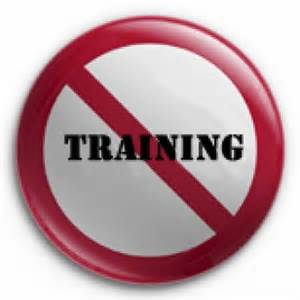
Have you ever noticed that some training functions have to produce results while others do not? And by results I mean behavior changes, not butts in seats. Why do so many training functions lack staff, funding to expand and are not recognized as important? Bottom line, either you don’t matter or no one knows what you are doing for the company.
While many of you have formats within your company to broadcast your results, I’d like you to consider a bigger platform. Most of you reading this blog post probably found it via your connection to me on LinkedIn, and I bet big time that most of you are connected on LinkedIn to several employees within your company that could benefit from knowing how successful your training department is for the company. So try posting once a week what your training department accomplished for the company. How did you improve sales, service, operations, stay in compliance, save money?
Now think about the people in your company that you are NOT connected to in LinkedIn. Is the CEO one of your connections? Would they benefit from hearing from you weekly about the value you provide to the company? Go get connected to the people that can provide you support by giving them the information needed to support you!
Another side benefit to posting on LinkedIn will be the company that wants to hire you. Actually it is the company that wants a Training Manager that can actually accomplish things for them. Imagine the job offers that could come out of the blue just because you tooted your own horn.
If you try this, come back and post your successes.
 In my humble opinion, there is a primary reason for when a company fails at adult learning. The number one, the very tip top reason is when the management team exercises their limited understanding of adult learning into the solution process. Yet this same group of highly incompetent leaders will always have a scapegoat standing by to sacrifice and blame when things go wrong.
In my humble opinion, there is a primary reason for when a company fails at adult learning. The number one, the very tip top reason is when the management team exercises their limited understanding of adult learning into the solution process. Yet this same group of highly incompetent leaders will always have a scapegoat standing by to sacrifice and blame when things go wrong. Before you are quick to answer the question of who leads your training function with a knee-jerk response like, “we have a training manager”, I want you to think about whether they “LEAD” it, or whether another person is pulling the strings.
Before you are quick to answer the question of who leads your training function with a knee-jerk response like, “we have a training manager”, I want you to think about whether they “LEAD” it, or whether another person is pulling the strings. I was speaking with a new publisher the other day who wanted to know more about the book I wrote on the consequences of inadequate training strategies call
I was speaking with a new publisher the other day who wanted to know more about the book I wrote on the consequences of inadequate training strategies call  Back when this guy began his training career some 30 years ago I was surrounded by highly skilled facilitators, instructional designers, organizational development consultants and training leaders. I had some of the best mentors and coaches for the first 10 years of my career and it is why I know how to lead a learning function.
Back when this guy began his training career some 30 years ago I was surrounded by highly skilled facilitators, instructional designers, organizational development consultants and training leaders. I had some of the best mentors and coaches for the first 10 years of my career and it is why I know how to lead a learning function.


